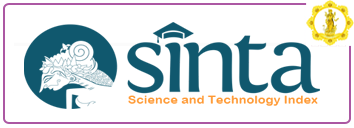Verba Mencuci “Kumbah” dalam Bahasa Jawa: Kajian Metabahasa Semantik Alami
DOI:
https://doi.org/10.25078/ds.v3i2.2959Keywords:
Verba, Kumbah, Natural Semantic MetalanguageAbstract
Javanese is a language used in the daily lives of people who pay attention to the norms in speaking. But unfortunately, the use of Javanese language has begun to fade, which can be proven by the neglect of the use of Javanese language in conversation, and not a few people also do not know Javanese language, including verbs. There are many verbs in the Javanese language, but the researcher wants to focus on the verb washing "kumbah" in Javanese language analysed with the theory of Metabahasa Semantik Alami (MSA). The verb wash "kumbah" has 11 forms of equivalents asah-asah, ngumbahi, wijik, wisuh, mususi, raup, sibin, kemu, kramas, jamasan, and padusan. Of all the "kumbah" washing verbs, there are differences in each verb which can be seen from the procedure for washing and the object being washed. The verb wash "kumbah" in Javanese has a different object in its application, and can be explained by using the explication A wants B to become C. The difference in meaning is obtained by analysing the meaning of the verb. The difference in meaning is obtained by analysing the original meaning combined with uncompositional polysemy.









